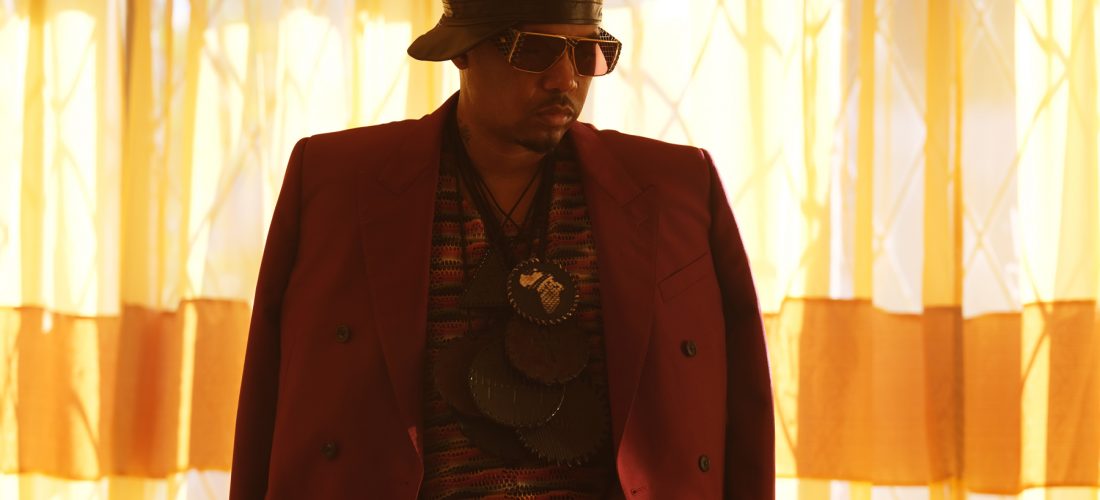Nas’s “King’s Disease” Gets Derailed by Petty Misogyny
On his 1994 coming-of-age masterpiece Illmatic, Nas rendered the sprawling Queensbridge Houses, and the thrills and despair of young Black life in Dinkins-era New York City, with the detail and scale of Bosch’s Garden of Earthly Delights. He’s never come close to making another Illmatic, but he’s still mining the album’s rich source material 26 years later.
The high points on King’s Disease, Nas’s first full-length album since 2012, are the songs when he revisits his formative experiences in the late ‘80s and early to mid ‘90s. Snapshots from those teenage years still come to him easily, and his lucid storytelling unspools in quarter-verse vignettes. The opening lines of “Blue Benz” recall the iconic opening scene in Belly: “I used to be at The Tunnel, twenty deep in a huddle/ Razors on us that’ll make skin bubble, Moet, we guzzle/ Chris Lighty let me in a few times with nines.” On “Car 85,” the car service preferred by hustlers of Nas’s generation inspires a summertime cruise down memory lane: “That’s NY, White Castle at midnight/ Fish sandwiches, 40-ounces, and fistfights.” Hit-Boy’s production on the album, which deftly weaves hazy horns, filtered soul samples, muted drums, and lots of piano, is a particularly apt backdrop during these moments of nostalgic reverie.
Nas’s Black pride and righteous anger, which animate much of King’s Disease, resonate the most when he draws a line between his present and pre-fame past. By touching on the infamous 1994 crime bill that cast young black men as “super predators,” the emotional trauma success can’t fix (“Corner executive born in ghetto hell/ Where metal yell”), and the 2020 death of Kiing Shooter, the 27-year-old Queensbridge rapper who had been signed to his label, he retraces his bleak worldview anew post-George Floyd. The Devil’s lasso is a flat circle.
King’s Disease sometimes doubles as a Nas advice column, and the nuggets of OG wisdom he attempts to dispense vary wildly in quality. For every pearl, there is a turd. Several turds arise when Nas treats multisyllabic rhyme as its own end. “The stupidest part of Africa produced Blacks who started algebra,” he contends on the title track. On “10 Points,” the impulse to advise “street dudes” leads him into bland pastures: “get a lawyer, read your contract, and eat food.”
The biggest and most immovable turd of all is Nas’s petty misogyny. While he spends much of King’s Disease doling out namechecks to men of all stripes—billionaires, record execs, dancehall pioneers, basketball players, Beatles, his boxing coach, his boys—he spends an equal amount of time wishing women would stay in their place. He takes a cheap shot at Doja Cat, a woman he may or may not know. His indignation rises to a fever pitch on “The Definition” when he arrives on the topic of Gayle King, the TV journalist who brought up Kobe Bryant’s rape allegations on the day of his death. “Replace Me” and “All Bad,” generic reflections on failed romances, appear as calculated additions to the tracklist designed to show that he’s had “normal” relationships, in light of the allegations of domestic abuse his ex-wife Kelis aired against him in 2018.
Nas has vehemently denied Kelis allegations, as well as those made by his ex Carmen Bryan, who wrote of their relationship in 2006: “The next thing I knew I was being hit in the face with a closed fist. The impact of the blow was so fierce that I saw stars.” On King’s Disease, he doubles down on these denials and advances a bizarre sense of male victimhood. Less than a minute into the album, he goes off on cancel culture and takes aim at Kelis, whom he believes fabricated her stories of abuse out of spite. On “Til The War is Won,” a performative tribute to Black women, he disavows “coward men that were beating on you,” then mutters, as an aside—“Never me.” Whether Nas doth protest too much is up for debate; either way, he clearly feels sorry for himself. He also apparently does not see the irony of claiming some women want to “slump” him.
At its best, King’s Disease is a slick Illmatic redux, a fresh portrait of Nas’s now-mythical hustler years that expands his Queensbridge universe with new characters and anecdotes and finds him in vintage form as a rapper and storyteller. At its worst, it is a misguided attempt to paper over abuse allegations and a stark showcase of his increasingly questionable politics when it comes to women. 26 years after Illmatic, Nas still has room to grow.
